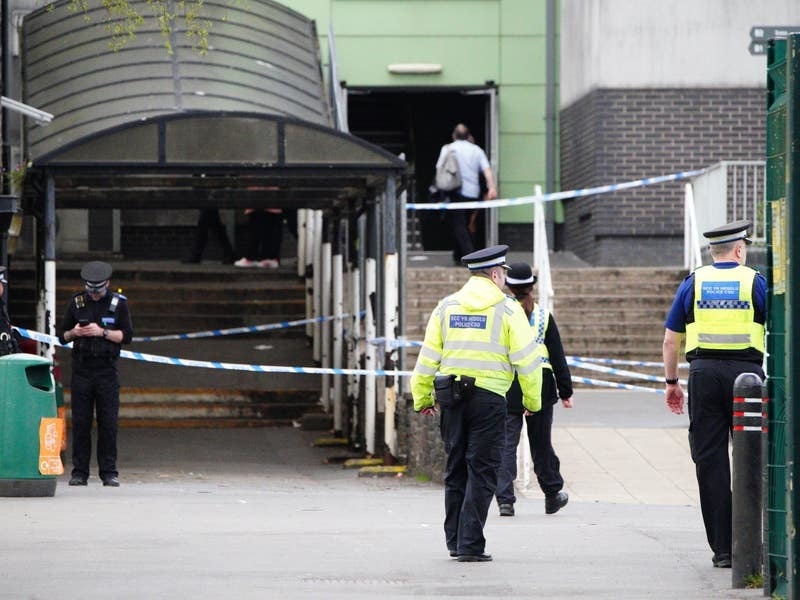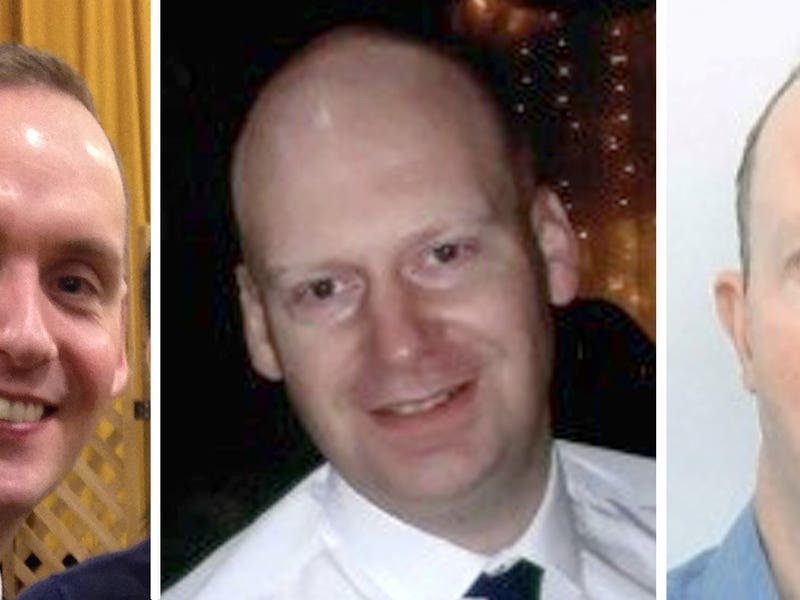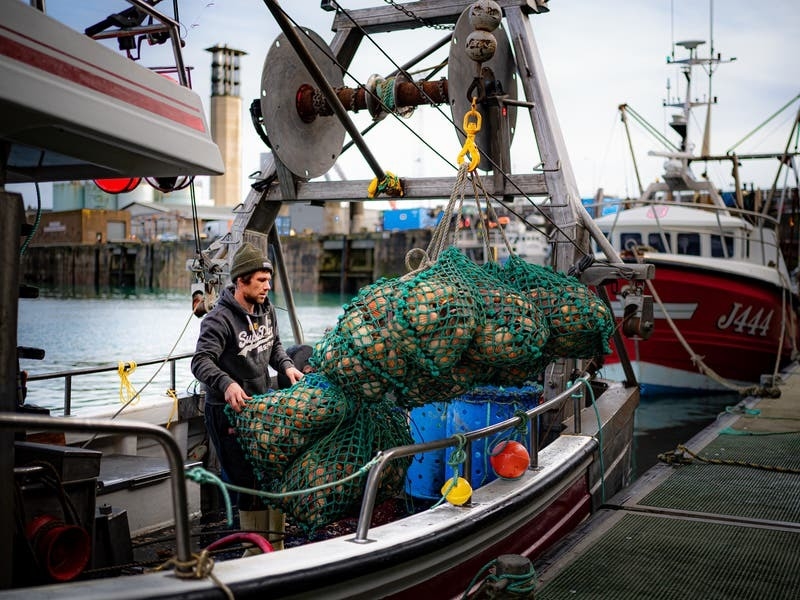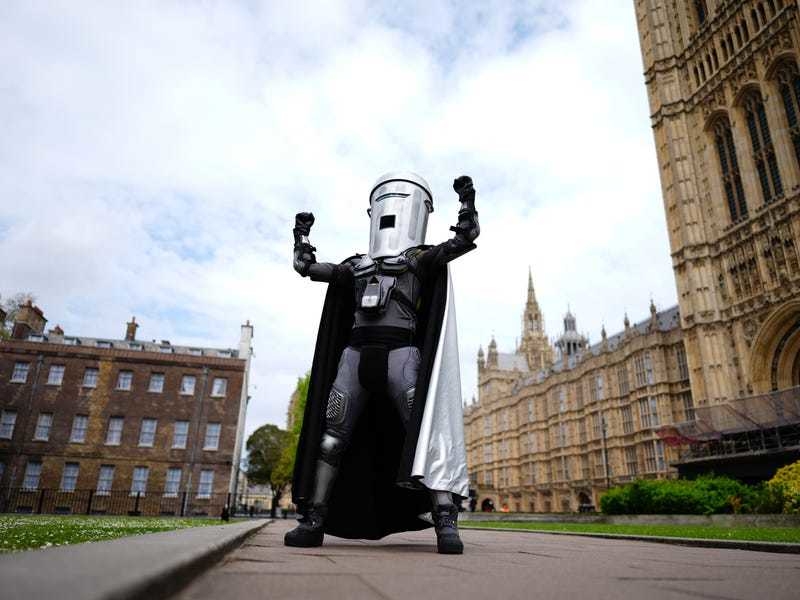Tens of millions of people watched the media coverage of American President Donald Trump’s historic meeting with North Korean leader Kim Jong-un in Singapore earlier this month.
The friendly rhetoric between the leaders resonated particularly strongly in the ears of Islander Joseph Martin – for he had fought in the bloody Korean War more than 60 years before.
‘I always hoped something like this would happen,’ says Grouville resident Mr Martin, who was a sapper in the Royal Engineers. ‘The good thing is they are talking to one another – talk, talk, talk is much better than war, war, war.’
He remembers the bombs falling – and the blood spilt – after arriving in Korea on the SS Empire Pride in 1952.
‘Our job was to support the Black Watch Royal Regiment of Scotland against the Korean and Chinese communists. We built a network of tunnels underneath no man’s land, so they could get behind North Korean [lines] – and also so that we could all take cover from bombing raids.
‘Someone would shout “London, London” and we didn’t need to hear that twice to know what to do – it was the cue to dip down into the tunnels to stay safe.
‘It was a very dangerous environment and on Christmas Day morning of 1952 one of our guys jumped over the wire into no man’s land and fell on an anti-missile mine. He suffered a terrible injury – he lost his manhood.
‘He was stranded in no man’s land and the North Koreans were throwing the kitchen sink at him. We managed to reach him and there was blood everywhere – it was a dreadful sight. Myself and two others hauled him onto a stretcher and into a helicopter, which took him to the Mobile Army Surgical Hospital.’
These American medical units were famously parodied in the hit television comedy series MASH, which used humour to dilute the horrors of war, but the reality was no laughing matter.
‘Unfortunately he didn’t survive,’ adds Mr Martin, who remembers how moments of calm could also be punctuated by sudden overhead attacks. On one such occasion he was wounded by falling shrapnel.
‘I was in the back of a truck making our way through the administration tents at the back of the British camp, when an artillery shell flew over and landed in our truck. Someone shouted “duck” and the other guys in the truck reacted a little faster than I did.
‘I copped a piece of shrapnel in the thigh and a splintering of it in my mouth. I was all right but I was sent to the medical unit for a check-up.
‘The War Office sent a telegram back to my mother to say “Your son has been wounded in action”. I didn’t really want them to do that and afterwards I was inundated with letters from my mother and father. But I was taken good care of by the doctors, so there was no need to worry.’
Born in Dublin, Mr Martin had enlisted in the army at 18: ‘I was shipped off to Liverpool after a week and our first training camp was in Worcester. There were a lot of female colleges there and I thought to myself, “What a lovely place to be doing my field training”.’
He was soon boarding the HMT Empire Pride with his fellow Royal Engineers from Southampton, bound for Korea.
‘It was the first time I’d slept in a hammock,’ says the 86-year-old, whose first stop was a British training base in Kure on the south coast of Japan – ten miles from Hiroshima.
Only seven years had elapsed since the United States – with the consent of Britain – had dropped atomic bombs on Hiroshima and Nagasaki in a move that ended the Second World War by forcing Japan to surrender.
More than 70,000 people directly perished in Hiroshima alone and by the end of 1945 that number had increased to as many as 166,000 due to radiation poisoning.
Mr Martin says that when he cast his eyes across the city in 1952, it was still an apocalyptic scene.
‘Everywhere had been decimated. Some people were living there, but houses lay flattened all over the place and my immediate feeling when I saw the devastation was, “Christ, that bomb made a right mess”. Those atomic bombs were out of this world.’
Having travelled to practically the other side of the globe, Mr Martin says the British military depo in Kure was ‘full of Australian training instructors’ and he remembers sage words of advice given out by an Australian sergeant.
‘The Aussie sergeant said, “If you listen to me you will leave Korea and get back safely. If you don’t listen you will still leave Korea – but in a box or strung up by your legs by the enemy.” So I listened intently. We learnt a lot about mines and how to carry out demolitions.’
Once their training was complete, Mr Martin and the rest of the squadron were deployed to Pusan. These days it is known as Busan and is South Korea’s second most-populous city behind Seoul, but back in the early 1950s it served as a temporary capital for the Republic of Korea.
Mr Martin was stationed in Korea for two years and during that time he and his comrades were allowed two weeks of leave.
‘Fifty of us were sent back to Japan midway through our time in Korea to stay for a fortnight at a British R&R camp. It was like a hotel with showers and plenty of food. I even met some geisha women.’
He says that contrary to popular myth – and the expectations of his fellow soldiers – geishas did not offer themselves to men for money.
‘We had tea with them one day, but they weren’t in to messing about. They were all very well-educated ladies who would often be at the airport to greet important foreign dignitaries and show them around the city. They could speak almost any language you could think of.’
However, with so many virile young men in the prime of their lives serving overseas – and not knowing whether their days might be cut short by the enemy back in Korea – it was perhaps inevitable that Japanese brothels in the early 1950s were frequented by western soldiers.
‘There were little places off the street in Pusan – and later when I was serving in Hong Kong – where we would go. Everyone was rigidly and regularly tested – men and women – for infections, and you would have to sign a sheet and write down who you slept with, where and when and hand it to your sergeant because of the risk of venereal disease.’
Of even greater concern to the troops was the weather, according to Mr Martin.
‘In winter time the snow came up to your neck and it was so cold – it was the first time I ever had to wear long johns and we had to wear two pairs of gloves. If you left a metal spanner out overnight it would freeze and could even snap in two.’
Once his service in Korea was complete, he and the rest of the squadron boarded a boat to continue their military service in Hong Kong.
He says the boat was none other than HMT Empire Windrush – the vessel that had, six years previously, carried the first generation of Caribbean migrants to Britain. He himself finally returned to ‘Blighty’ in 1957.
‘Having been to several places across the world, I ended up working at a training regiment in Southampton. But my last job in the services was a good one – I was the barman in the officer’s mess,’ he grins.
By that point, there was only one place on his mind.
‘Some of the soldiers I became friends with in Korea were from Jersey and Guernsey and when we were all demobbed they said, “Joe, you’ve got to come and see Jersey”.
‘So I did and I met my late wife Wanda in Jersey at a party. We got married in the Sixties.’
Mr Martin has held a variety of different jobs during his working life in the Island, including as a power station manager, and has family living in the Island.
‘My son, Danny, lives in St Peter’s Valley with his wife,’ adds Mr Martin, who has two grand-daughters, Katy and Lucy.
He hopes the young generation across the Korean Peninsula will also grow up in a peaceful environment.
‘It is right that the American president has met the North Korean leader and I think this was an important move towards lasting peace.’






